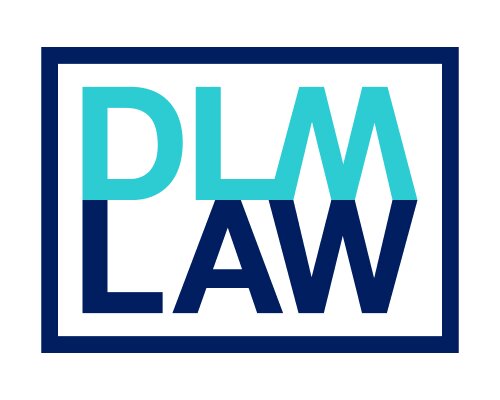Best Antitrust Litigation Lawyers in Kansas
Share your needs with us, get contacted by law firms.
Free. Takes 2 min.
Or refine your search by selecting a city:
List of the best lawyers in Kansas, United States
About Antitrust Litigation Law in Kansas, United States
Antitrust litigation refers to legal disputes involving allegations of anti-competitive conduct, monopolization, price fixing, or other activities that may harm free market competition. In Kansas, as in the rest of the United States, both federal and state laws govern these issues to ensure fair competition and protect consumers and businesses from unfair practices. The goal of antitrust law is to maintain a competitive marketplace by preventing agreements or behaviors that unreasonably restrain trade.
Why You May Need a Lawyer
Antitrust litigation can be highly complex, requiring a deep understanding of both legal principles and economic matters. You may need a lawyer if you are:
- Part of a business accused of price fixing, bid rigging, or market allocation
- A competitor suspecting another business of monopolistic behavior
- An individual or business harmed financially by potentially unfair competition
- Subject to an investigation by federal or state authorities for antitrust violations
- Seeking advice to ensure your business practices comply with antitrust laws
- Involved in mergers or acquisitions that could trigger antitrust scrutiny
An experienced antitrust lawyer can guide you through regulatory investigations, craft defenses, and represent your interests in court if litigation arises.
Local Laws Overview
Kansas antitrust law is shaped by both federal statutes, such as the Sherman Act and Clayton Act, as well as state laws like the Kansas Restraint of Trade Act. While federal agencies such as the Department of Justice (DOJ) and Federal Trade Commission (FTC) often lead in enforcement, the Kansas Attorney General also plays a significant role in investigating and prosecuting antitrust violations within the state. Key aspects include:
- The Kansas Restraint of Trade Act prohibits contracts, combinations, or conspiracies that restrain trade or commerce within Kansas.
- Both criminal and civil penalties can apply for violating antitrust laws.
- Private parties can bring lawsuits for damages if they are harmed by anti-competitive conduct.
- Certain industries, such as agriculture, healthcare, and insurance, may have unique considerations under Kansas antitrust law.
- Kansas courts often look to federal court decisions interpreting the Sherman Act for guidance.
Understanding the overlap and distinctions between federal and state antitrust statutes is essential when dealing with these matters in Kansas.
Frequently Asked Questions
What are some examples of antitrust violations?
Typical antitrust violations include price fixing between competitors, bid rigging, monopolization, exclusive supply or distribution agreements that unfairly limit competition, and mergers that significantly reduce market competition.
Who enforces antitrust laws in Kansas?
Antitrust laws are enforced by federal agencies like the DOJ and FTC, as well as the Kansas Attorney General's Office. Private individuals and businesses can also bring civil lawsuits under antitrust statutes.
Can I file an antitrust lawsuit as a business owner in Kansas?
Yes, if you believe your business has been harmed by another company's anti-competitive conduct, you can file a civil lawsuit for damages or injunctive relief under Kansas or federal antitrust laws.
What damages are available in antitrust cases?
Successful plaintiffs may be awarded compensatory damages, and in some instances, treble damages (three times the actual harm suffered), plus attorneys' fees and costs.
How long do I have to file an antitrust lawsuit in Kansas?
The statute of limitations for antitrust claims varies, but typically, you must bring a claim within four years of the alleged violation. It is important to consult a lawyer promptly to preserve your rights.
Are there defenses to antitrust claims?
Yes, potential defenses include arguing that the conduct in question was pro-competitive, there was no intent to harm competition, or that the statute does not apply to the alleged behavior.
What is the process after an antitrust complaint is filed?
The lawsuit begins with a complaint, followed by the exchange of information (discovery), motion practice, potential settlement discussions, and possibly trial. These cases can be lengthy and require substantial evidence.
Can individuals be held personally liable for antitrust violations?
Yes, in some circumstances, individuals who direct or participate in antitrust violations can face personal civil or even criminal liability, including fines and imprisonment.
How do Kansas antitrust laws differ from federal laws?
While Kansas laws mostly mirror federal statutes, there can be differences in interpretation and enforcement. Kansas courts often refer to federal case law, but state enforcement focuses on conduct affecting Kansas commerce.
What should I do if I am contacted by a government agency about an antitrust issue?
If you are contacted by the DOJ, FTC, or Kansas Attorney General regarding a potential antitrust violation, you should consult with an antitrust attorney before responding or providing documents.
Additional Resources
Several resources are available to those seeking more information or help with antitrust litigation in Kansas:
- Kansas Attorney General - Consumer Protection and Antitrust Division
- United States Department of Justice Antitrust Division
- Federal Trade Commission (FTC) Bureau of Competition
- Kansas Bar Association - Lawyer Referral Services
- Local law schools and legal aid organizations that may offer educational materials or clinics
Next Steps
If you think you may be involved in or affected by an antitrust issue, take the following steps:
- Document any relevant communications, agreements, or behavior that may relate to the antitrust concern
- Consult a lawyer who specializes in antitrust law and litigation in Kansas
- Do not destroy or alter any records that may be related to a government investigation or private lawsuit
- If you have received any official inquiry, do not respond without seeking legal guidance
- Contact your local bar association for lawyer referrals if you do not already have legal counsel
Antitrust litigation can be complicated and high-stakes. Early legal advice is crucial to protect your rights and help ensure the best possible outcome.
Lawzana helps you find the best lawyers and law firms in Kansas through a curated and pre-screened list of qualified legal professionals. Our platform offers rankings and detailed profiles of attorneys and law firms, allowing you to compare based on practice areas, including Antitrust Litigation, experience, and client feedback.
Each profile includes a description of the firm's areas of practice, client reviews, team members and partners, year of establishment, spoken languages, office locations, contact information, social media presence, and any published articles or resources. Most firms on our platform speak English and are experienced in both local and international legal matters.
Get a quote from top-rated law firms in Kansas, United States — quickly, securely, and without unnecessary hassle.
Disclaimer:
The information provided on this page is for general informational purposes only and does not constitute legal advice. While we strive to ensure the accuracy and relevance of the content, legal information may change over time, and interpretations of the law can vary. You should always consult with a qualified legal professional for advice specific to your situation.
We disclaim all liability for actions taken or not taken based on the content of this page. If you believe any information is incorrect or outdated, please contact us, and we will review and update it where appropriate.
Browse antitrust litigation law firms by city in Kansas
Refine your search by selecting a city.















